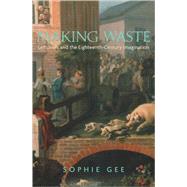Making Waste
, by Gee, Sophie- ISBN: 9780691139845 | 0691139849
- Cover: Hardcover
- Copyright: 12/28/2009
Why was eighteenth-century English culture so fascinated with the things its society discarded? Why did Restoration and Augustan writers such as Milton, Dryden, Swift, and Pope describe, catalog, and memorialize the waste matter that their social and political worlds wanted to get rid of--from the theological dregs inParadiseLost to the excrements in "The Lady's Dressing Room" and the corpses of AJournal of the Plague Year?InMaking Waste, the first book about refuse and its place in Enlightenment literature and culture, Sophie Gee examines the meaning of waste at the moment when the early modern world was turning modern.Gee explains how English writers used contemporary theological and philosophical texts about unwanted and leftover matter to explore secular, literary relationships between waste and value. She finds that, in the eighteenth century, waste was as culturally valuable as it was practically worthless--and that waste paradoxically revealed the things that the culture cherished most.The surprising central insight ofMaking Wasteis that the creation of value always generates waste. Waste is therefore a sign--though a perverse one--that value and meaning have been made. Even when it appears to symbolize civic, economic, and political failure, waste is in fact restorative, a sign of cultural invigoration and imaginative abundance. Challenging the conventional association of Enlightenment culture with political and social improvement, and scientific and commercial progress,Making Wastehas important insights for cultural and intellectual history as well as literary studies.







